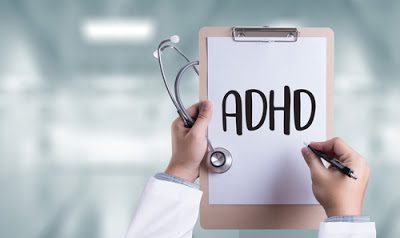
What Do We Need to Know About ADHD?
Maybe you have noticed your child being fidgety and displaying much more energy than other children. The reason for all of these behaviors is because of a mental disorder called ADHD. To ensure a proper diagnosis will better help your child in school as well as in life.
What is ADHD?
ADHD stands for Attention Deficit Hyperactivity Disorder. It is a childhood neurological disorder and can continue through adulthood. Some symptoms fade over time or can be expressed differently. According to Mental Help, it is considered the most common childhood disorder with 3-7% of children having it. You can have trouble focusing, trouble keeping still and act without thinking.
What are the symptoms of ADHD?
Symptoms include not being able to pay attention, talkativeness, fidgeting, being distracted, constantly interrupting others, shifting from one activity to another, forgetfulness, and having trouble organizing. This disorder is different than a child simply misbehaving in which it is long-term, severe, can impair everyday functioning, and must occur in more than one environment like challenges in school, family, peers, etc.
Can ADHD be treated with medication?
Yes. There are stimulants such as Ritalin, Concerta, Adderall, Adderall XR, Vyvanse, and Focalin XR to increase the brain chemical dopamine which helps with thinking and paying attention. Non-stimulants such as Strattera, Intuniv, and Welbutrin may take longer to work but can help improve focus, attention, and impulsivity if stimulant drugs do not work. Antidepressants can be used for symptoms of ADHD or if you also have anxiety, depression or another kind of mood disorder on top of ADHD.
What causes ADHD?
ADHD can be passed down from our family through their genes. Another link can be when mothers smoke cigarettes and drink alcohol during pregnancy. Children that are surrounded by lead from plumbing or paint in old buildings can develop a high risk of ADHD. Traumatic brain injuries can result in exhibiting ADHD symptoms. A lack of omega 3s as well as diets high in fat, sugar, or sodium can result in ADHD.
What kind of therapy helps with ADHD?
Behavioral therapy can help you learn how to organize tasks, schoolwork, or working through emotional events that are hard to handle. It can also teach you how to monitor behavior and give rewards after displaying good behavior. Behavioral therapy can also help with social skills, facial expressions, your tone of voice, and how to respond appropriately. Cognitive Behavioral Therapy can help you be aware of and accepting of your thoughts and feelings as well as improving focus and concentration. Family and marriage counselling can help you and your spouse or relative handle bad behavior, improve interactions, and encourage changes in behavior.






